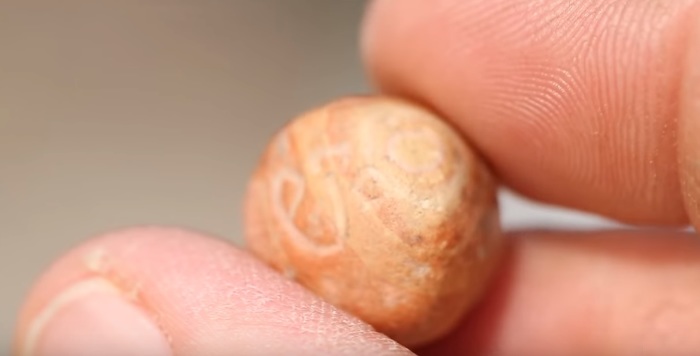Archaeological discovery: Stone weight mentioned in Bible found in Jerusalem

A small stone weight used during the First Temple period of Ancient Israeli history and mentioned in the Old Testament has been discovered in modern Jerusalem.
Known as a “beka,” the small stone weights are a rare find for archaeologists, with this recent discovery being located by a volunteer at a dig near the Western Wall. The beka is mentioned in the Bible.
Eli Shukron, an archaeologist working on behalf of the Israeli Antiquities Authority, said in a recent statement that the beka stone was unique in that its inscription goes left to right, rather than the usual right to left.
“Apparently, the seal craftsman got confused when he engraved the inscription on the weight and mistakenly used mirror script as he was used to doing,” stated Shukron, as reported by the Times of Israel last week.
“From this mistake we can learn about the general rule: the artists who engraved weights during the First Temple period were the same artists who specialized in creating seals.”
The beka is mentioned in the Bible, including in Exodus 38:26, “one beka per person, that is, half a shekel, according to the sanctuary shekel, from everyone who had crossed over to those counted, twenty years old or more, a total of 603,550 men.”
Last month, the Israel Antiquities Authority and the Israel Museum announced the discovery of a stone tablet from the First Century AD that had the modern spelling of Jerusalem in Hebrew lettering.
Yuval Baruch, Jerusalem regional archaeologist of the IAA, and Professor Ronny Reich of Haifa University explained the biblical significance of the find in a statement last month.
"First and Second Temple period inscriptions mentioning Jerusalem are quite rare. But even more unique is the complete spelling of the name as we know it today, which usually appears in the shorthand version. This is the only stone inscription of the Second Temple period known where the full spelling appears," stated the experts.
"This spelling is only known in one other instance, on a coin of the Great Revolt against the Romans (66–70 CE). The unusual spelling is also attested to in the Bible, where Jerusalem appears 660 times, with only five mentions — of a relatively late date — having the full spelling (Jeremiah 26:18, Esther 2:6, 2 Chronicles 25:1, 2 Chronicles 32: 9, and 2 Chronicles 25: 1)."




























